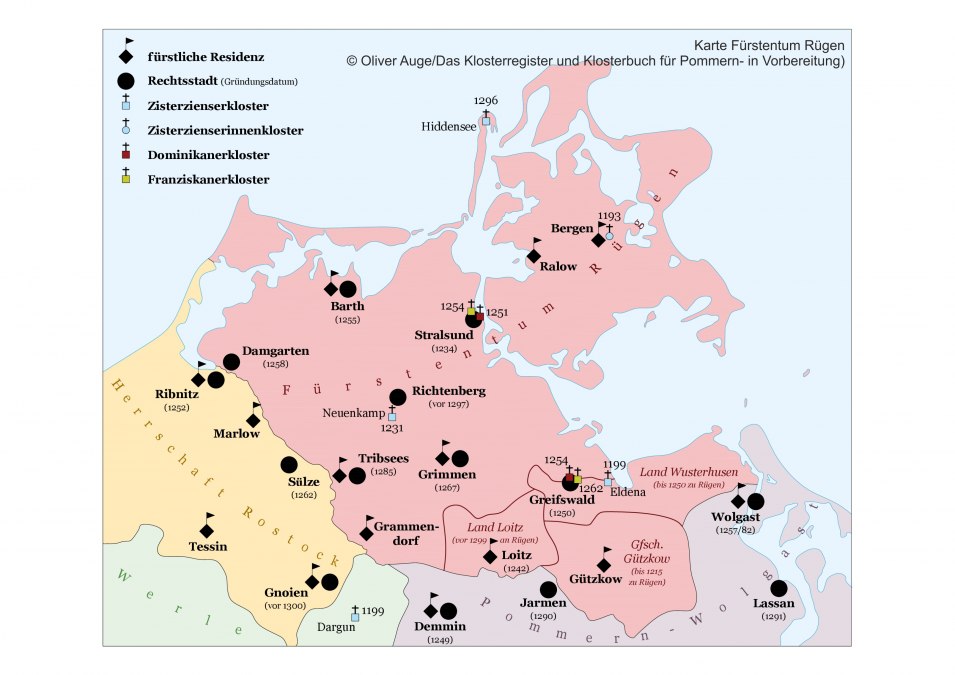To mark the 700th anniversary of the death of Wizlaw III, the Bergen City Museum is dedicating itself to the 700th anniversary of the Principality of Rügen.
In the Middle Ages, the Island of Rügen and the mainland between Damgarten and Greifswald formed the domain of the Princes of Rügen. Under these rulers, Island of Rügen was transformed from a Slavic principality under Danish dominance into an increasingly integral part of the Holy Roman Empire, with the Danish kingdom only formally renouncing its feudal sovereignty over the island itself in 1438. With the death of their last male representative, Wizlaw III, on November 8, 1325, these Rügen princes died out in the male line. This made 1325 an epochal year, because after the extinction of the Rügen princes, a protracted and costly dispute broke out between the lords of Mecklenburg and Werle on the one hand and the dukes of Pomerania on the other over the inheritance, which the Pomeranian princes were ultimately able to win, whereas the lords of Werle in particular emerged financially ruined. To this day, the legacy of the Rügen princes has remained a part of Western Pomerania. The illustrated lecture will present the history of the Princes of Rügen from the first concrete evidence in the 12th century to 1325 in its essential stages.
The speaker, Prof. Dr. Oliver Auge, has held the Chair of Regional History at Kiel University since 2009. From 2000 to 2007, he worked as a research assistant at the Chair of General Medieval History at the University of Greifswald, which he also held as a substitute in the winter semester 2007/08. During his time in Greifswald, he wrote a habilitation thesis on princely freedom of action in the Middle Ages, in which he researched the princes of Rügen in more detail.




